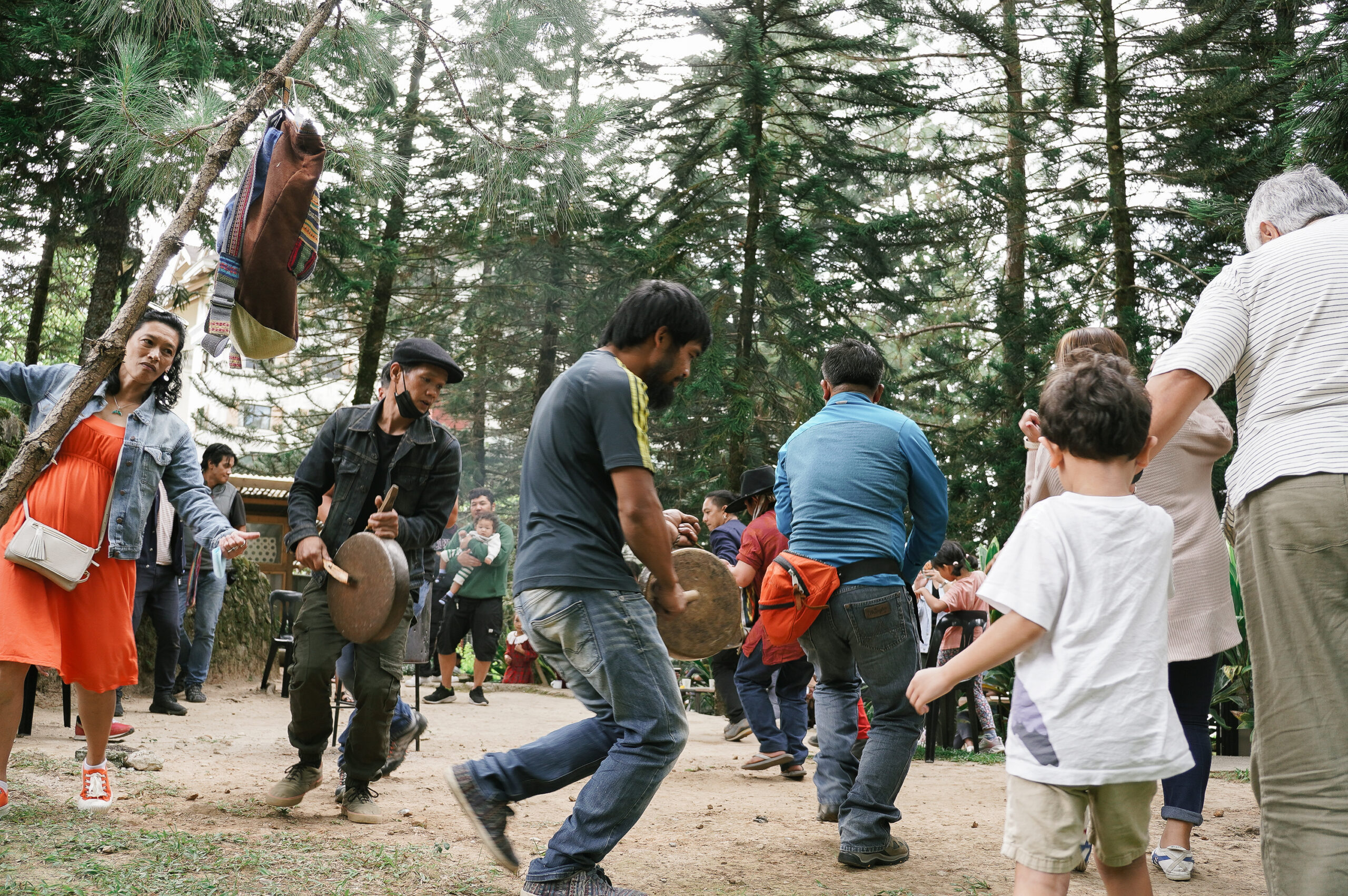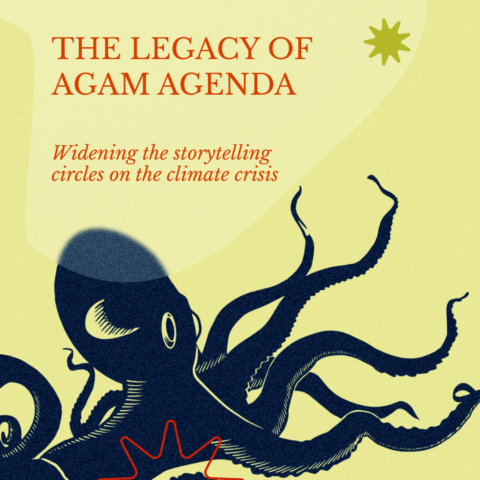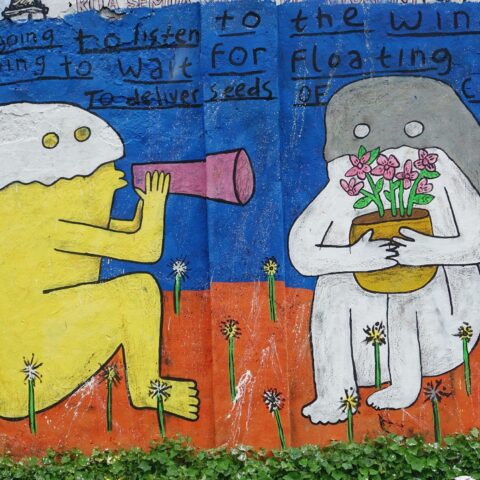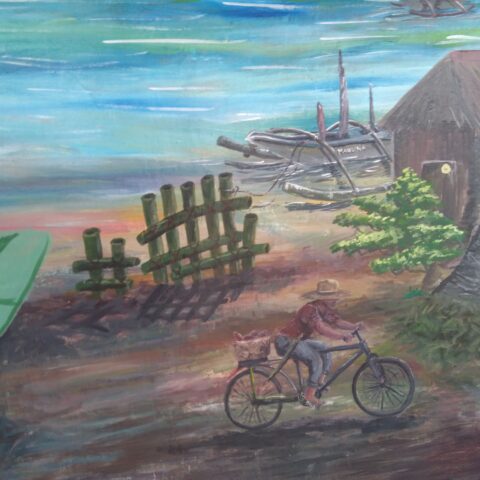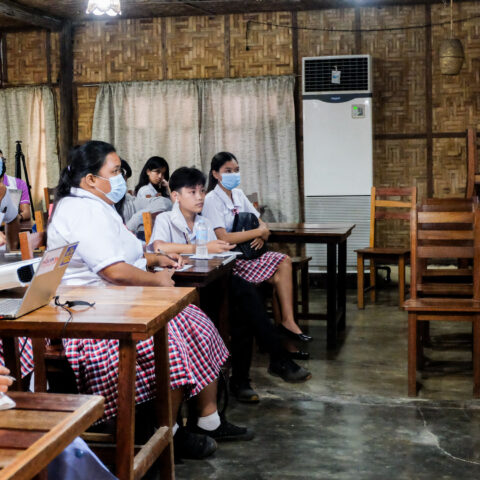The Harvest Moon anthology of poems and stories makes a case for arts in climate action in Baguio, Philippines. Photos by Salie Agustin © Institute for Climate and Sustainable Cities.
The anthology, Harvest Moon: Poems and Stories from the Edge of the Climate Crisis, has been touring with the Philippine Book Fair. From Manila to Batangas, its latest stop is the mountainous northern city of Baguio in the Cordilleran region of the Philippines.
On December 2, the Philippine Book Fair opened its doors to readers, writers, publishers, students, cultural workers, and educators to gather at the University of Baguio Centennial Hall. Organized by the Book Development Association of the Philippines and Ubbog Cordillera Writers with support from the National Book Development Board, the book fair stretched across two days, with several panels about writing and publishing in the Cordilleran context.
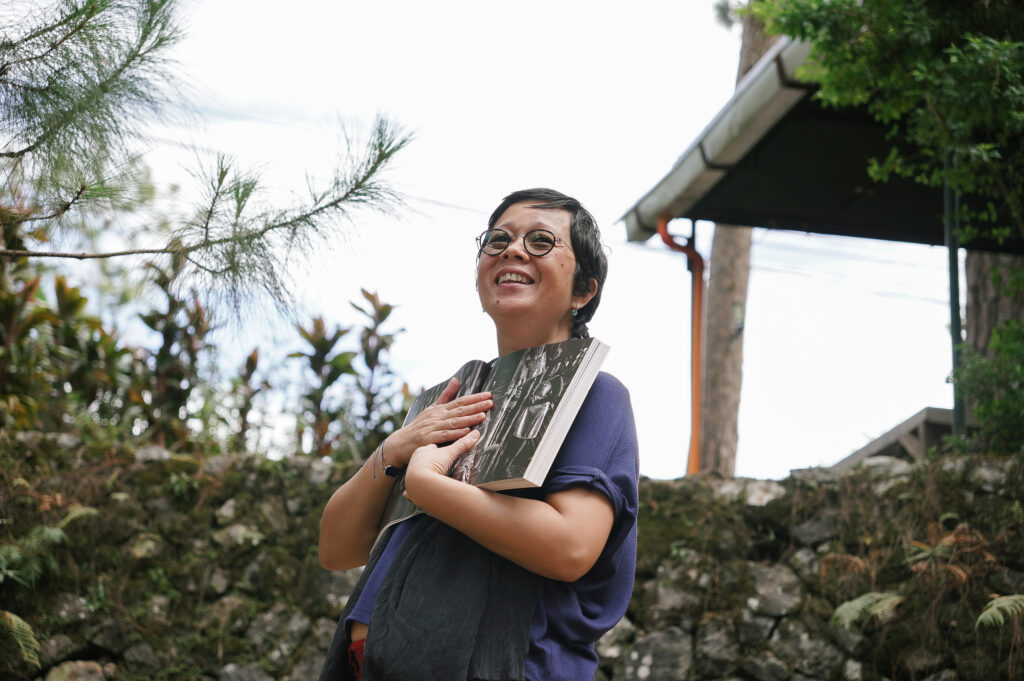
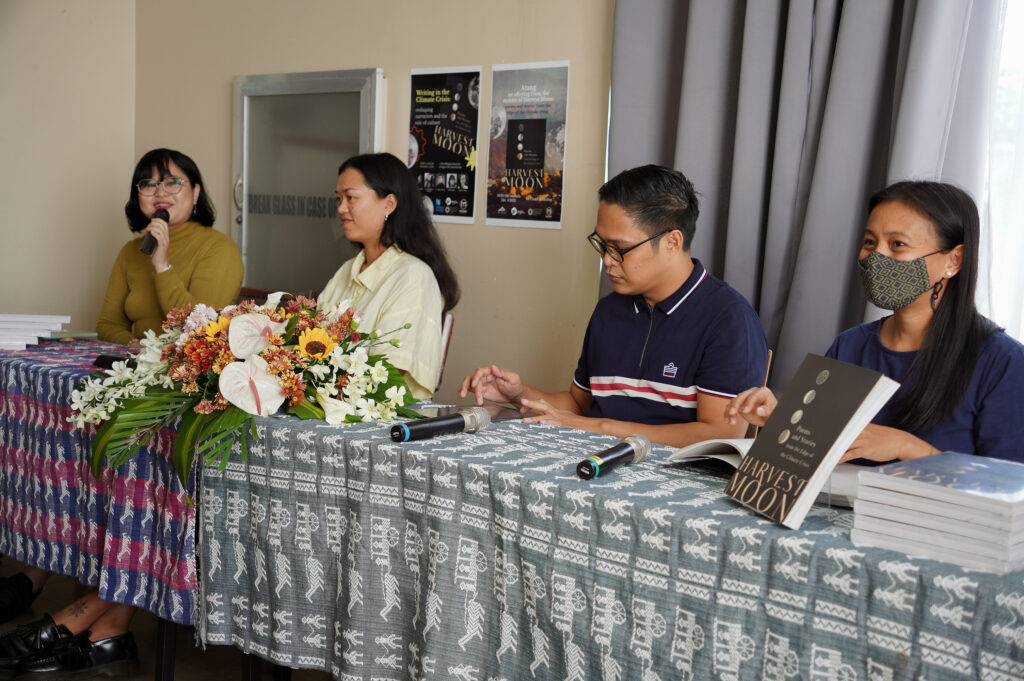
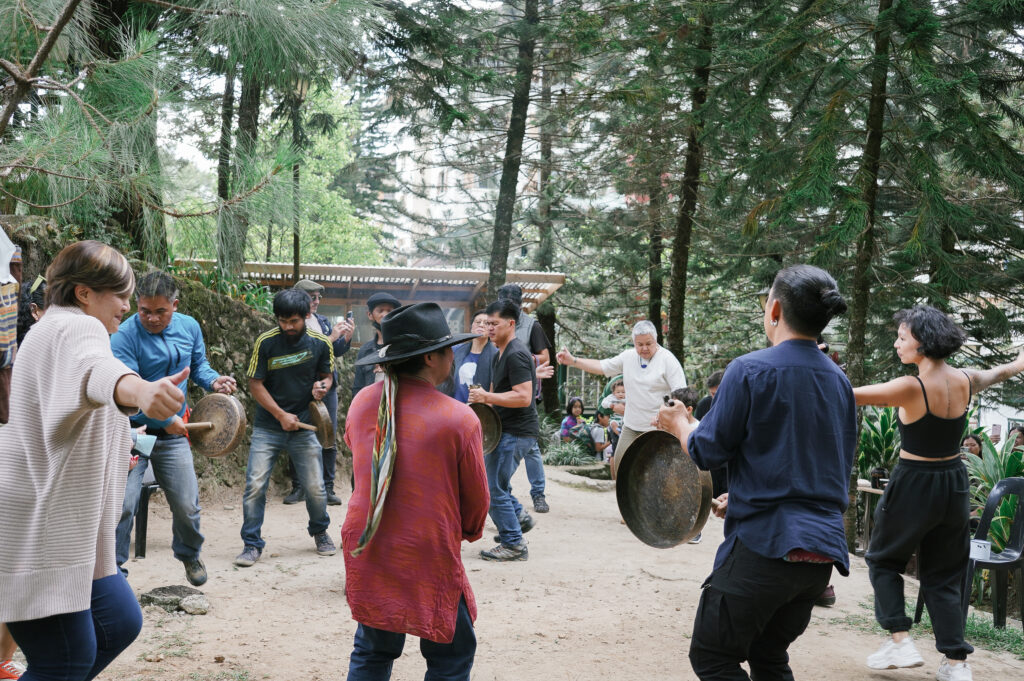
Reshaping narratives with creative writing
Being the first-ever Philippine Book Fair in the Cordilleran region, many local writers were part of the panels, including contributing writer to Harvest Moon, Gawani Domogo Gaongen, a local of the town Sagada, Mountain Province. Gawani joined Dr. Joey A. Tabula, writer and medical doctor from Zambales, and the Agam Agenda’s writer Aina de Guia Eriksson, in the panel titled Writing in the Climate Crisis: reshaping narratives and the role of culture. The panel was moderated by Carissa Pobre, writer and Agam Agenda Strategist for Creative Communication.
The panel opened up an enriching dialogue with artists, teachers, development workers, government officials, and young people in the audience. Focusing on why creative writing is important in tackling the climate crisis, Aina started off the panel by explaining how the arts invite us to observe our realities and share them with others, through a medium that honors the intricacies of our relationships to the earth.
By creatively examining the changes we are experiencing, we are able to reimagine and ‘rewrite’ the ways that climate solutions are conceived in these times.
Aina shared that the Agam Agenda’s global campaign When Is Now aims to amplify the connections between the arts and climate action by encouraging artists and writers to tell their stories. The submissions given to When Is Now show the far reaching and profound value of cultural systems in safeguarding the Earth. In this way cultural workers and artists are integral to conceptualizing and building resilient futures.
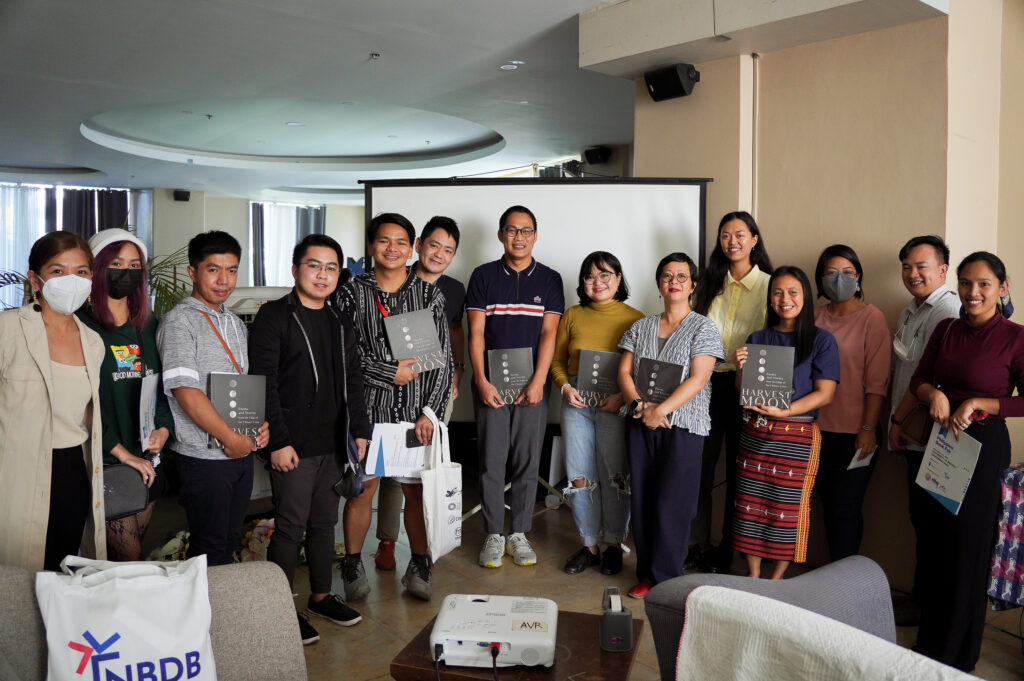
Through the call to action #RewriteCOP, the When Is Now campaign encourages artists to take space in climate negotiations by creating poetry and paintings that represent the world they wish to build.
Dr. Joey A. Tabula continued the panel by sharing what he has learned about listening and healing through his profession as a medical doctor. He begins by reading out his translation into Filipino of Gawani’s poem, Pangwani, in the Harvest Moon anthology. Pangwani means ‘terms’ in the Kankanaey language, which is spoken in the Mountain Province, and speaks about the terms of nature that we use to make sense of our world.
He then shared how translating requires observing not just the words in front of him, but also paying attention to the implicit signs and signals used in conveying a message. Translating Gawani’s poem, he draws from his experiences of facilitating healing in his patients. By reading the subtle signs of the body in sickness he is able to understand where in the healing process they are in, and what remedies are needed to aid the patient.
One cannot help but relate Dr. Joey’s words to the sicknesses we see on planet Earth. As he suggests, perhaps if we read Nature’s subtle signs, we may learn what we can do to facilitate healing.
Gawani rounds off the panel by asking herself, “In a world that is facing so many challenges, why am I brimming with so much hope?” She answers:
“It is through the stories in my community. These stories show me we have survived challenges before, and that we have the knowledge to create ways of living in harmony with the Earth.”
The panel provided a compelling case for the multifaceted power of creative writing and expression. It shows us that many translations will be needed to tackle climate change: translation of knowledge, translations of culture, and of language to connect us in a common cause.
Welcoming Harvest Moon to Baguio City
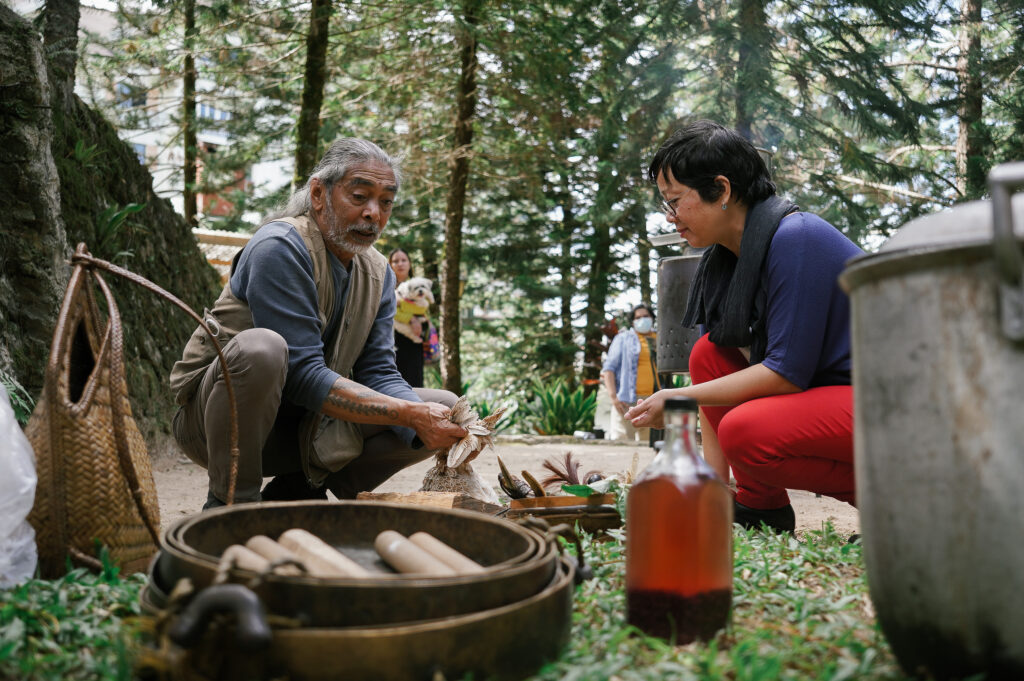
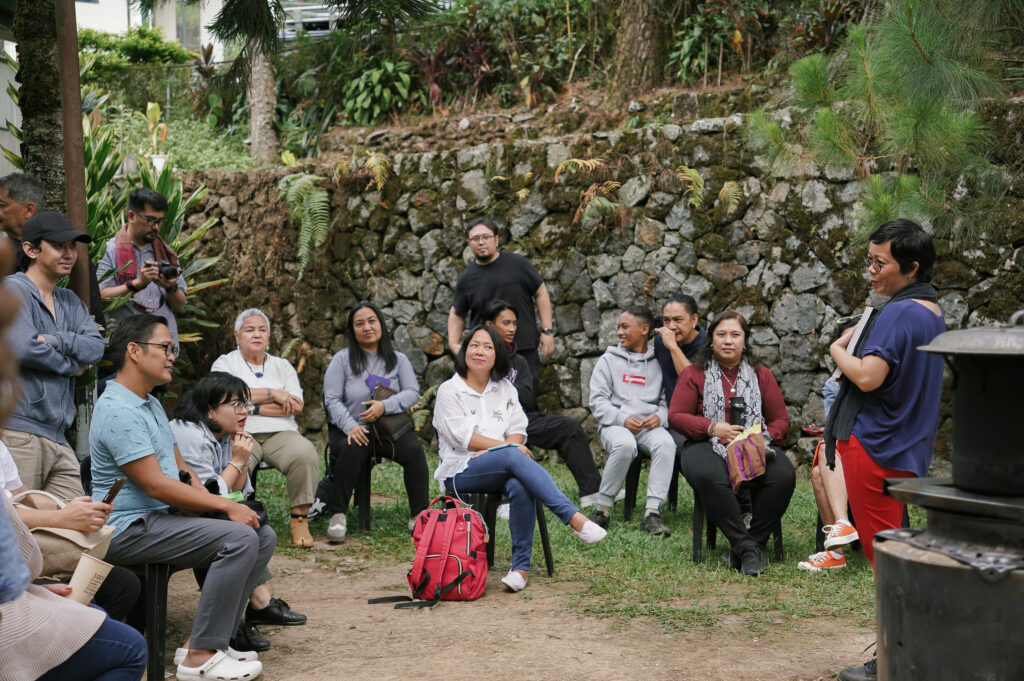
The weekend hosted not only the first-ever Philippine Book Fair in the region but also the launch of Harvest Moon in Baguio City. Padmapani Perez, lead editor of the anthology, lead strategist of Agam Agenda, and a local of Baguio City, organized an Atang, an offering, as a way to welcome Harvest Moon to the Baguio community.
The Atang is performed by many communities in the Cordilleras as a way to appease and give thanks to the spirits that live amongst humans and nature. Tommy Hafalla, recognized by the elders in the Cordilleras as a trusted conveyor of the culture, led the ritual with quiet prayers for the community and the book. Those attending the ritual were welcomed with tapuy (rice wine), and the traditional meal pinikpikan was eaten together.
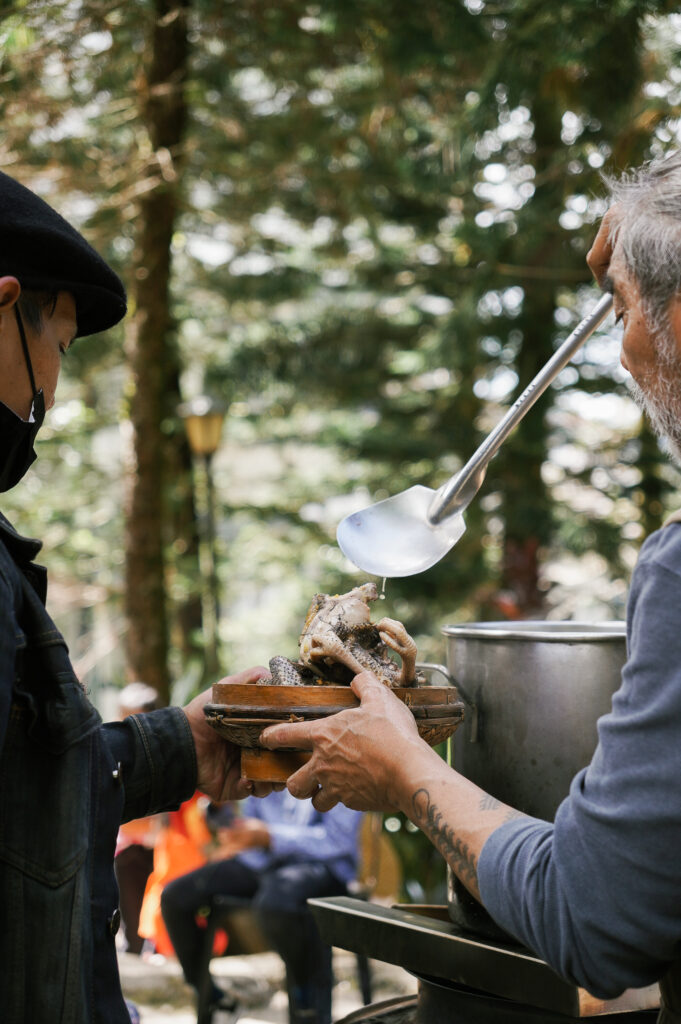
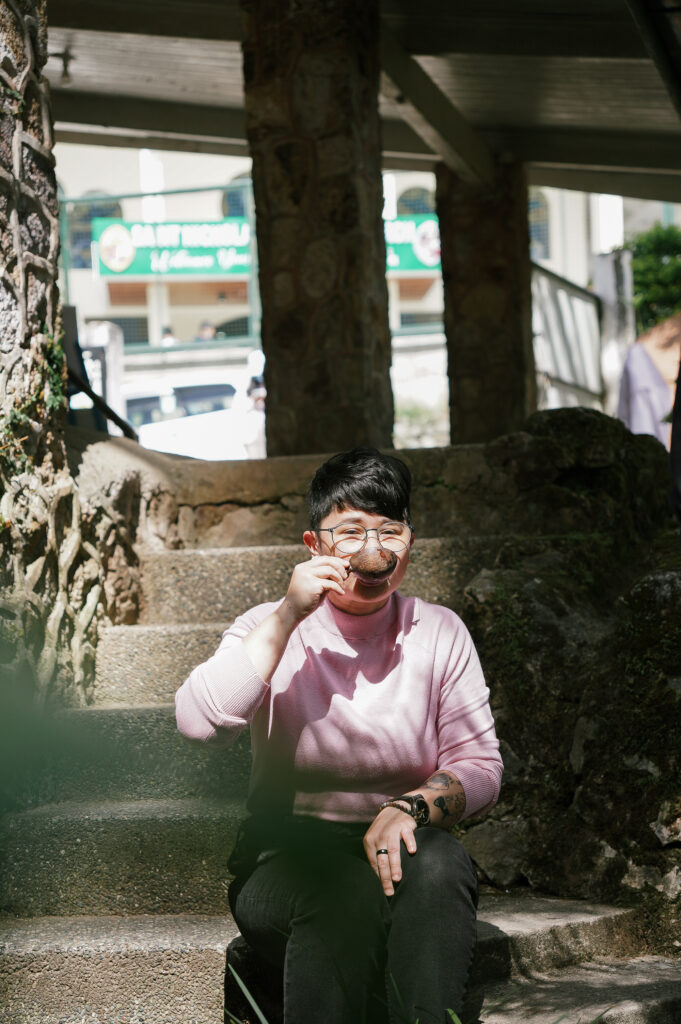
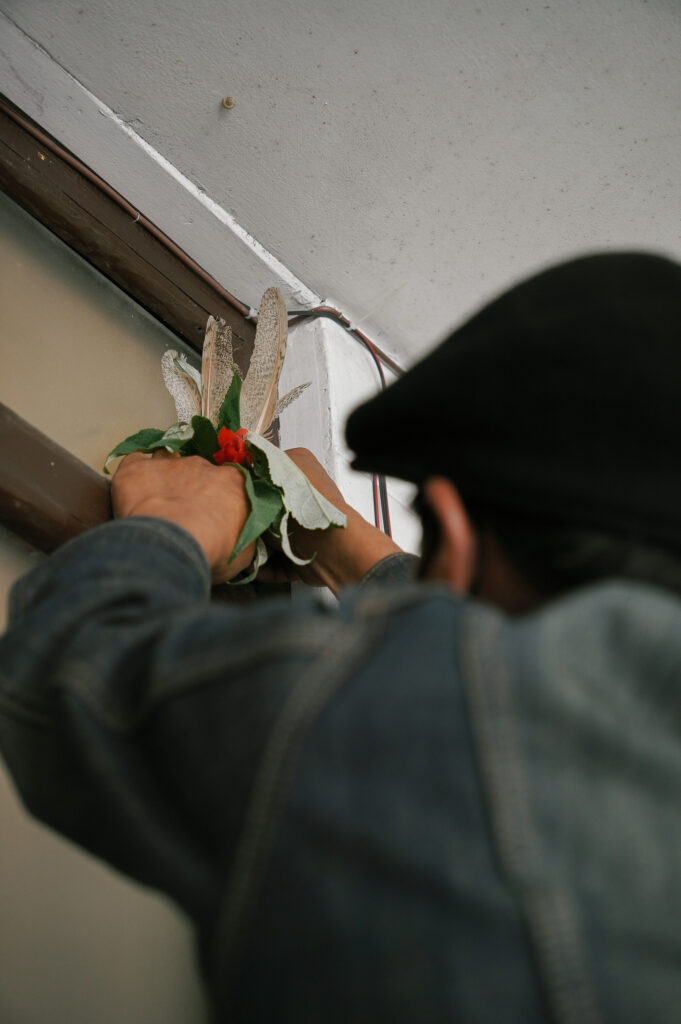
With good spirits, food, and music from the gongs, Padma offered the Harvest Moon anthology to the Baguio community. Copies were gifted to the Baguio Writers Group and Ubbog Cordillera Writers.
Learn more about the Harvest Moon anthology.
